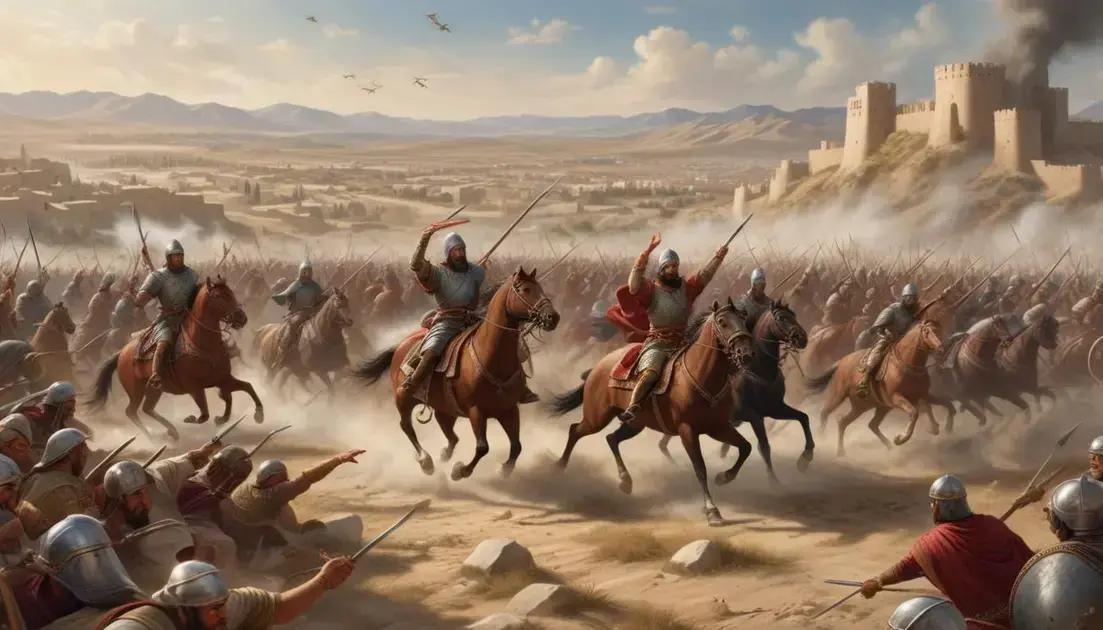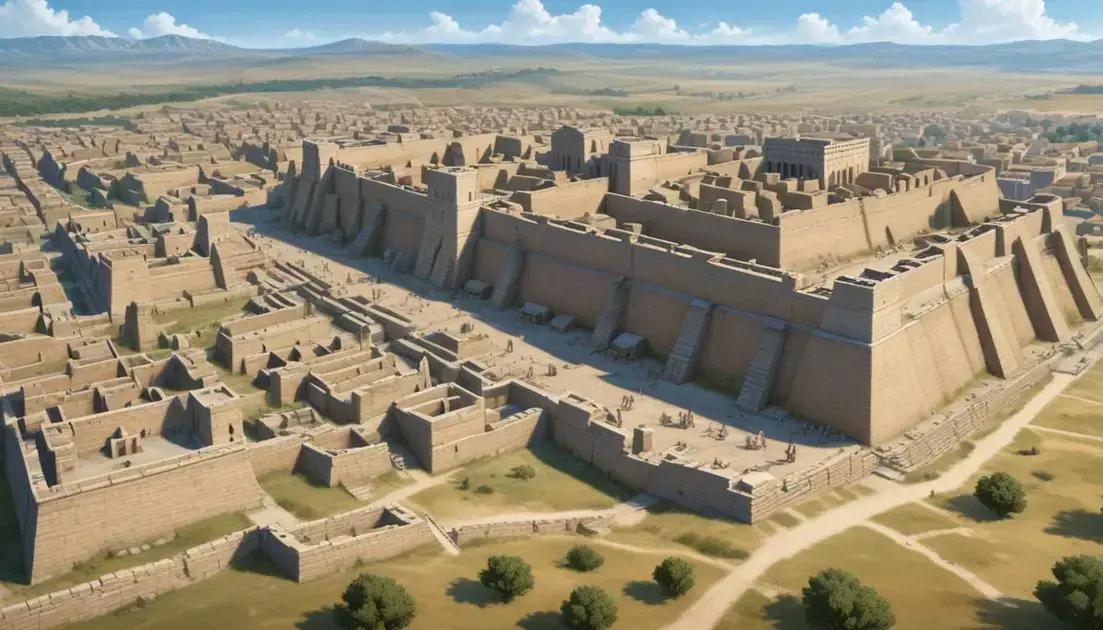
Manzikert: The Border Fall of the Byzantine Empire
The Battle of Manzikert in 1071 was a pivotal conflict that led to the decline of the Byzantine Empire and opened Anatolia to Turkish expansion. The Seljuk Turks’ victory not only marked a shift in power but also influenced the cultural and religious landscape of the region. This battle’s legacy shaped future empires in Turkey and had lasting effects on the historical development of Eastern Europe and the Middle East.
Did you know that the Byzantine Empire faced a critical turning point at the Battle of Manzikert? This clash not only changed the fate of a civilization but also redefined power in Anatolia. Let’s dive into how this battle unfolded and its lasting impacts.
The Battle of Manzikert overview
The Battle of Manzikert was a major conflict fought in 1071 between the Byzantine Empire and the Seljuk Turks. This battle took place near the town of Manzikert, in present-day Turkey. The Byzantine army was led by Emperor Romanos IV Diogenes, and the Seljuk forces were commanded by Alp Arslan.
During the battle, the two armies clashed in a fierce contest for control over the region. The Seljuks were skilled horsemen and used their mobility to their advantage. They employed clever tactics that caught the Byzantine forces off guard.
The battle ended in a decisive victory for the Seljuk Turks. This defeat significantly weakened the Byzantine Empire’s hold on Asia Minor. It also opened the door for further Turkish expansion into the region. The loss had long-lasting effects on Byzantine power and influence.
After the battle, the Byzantine Empire struggled to recover from this critical defeat. Many territories were lost, and the empire faced internal strife. The aftermath changed the course of history in the region, influencing future conflicts and state formations.
The outcome of the Battle of Manzikert marked a turning point. It shifted the balance of power in favor of the Seljuks and set the stage for centuries of conflict in Anatolia.
Significance of the Byzantine defeat
The defeat of the Byzantine Empire at the Battle of Manzikert had major consequences. It marked a turning point in the history of the empire. For centuries, Byzantium had been a dominant power in the region. After this battle, its influence began to decline.
This loss opened the door for Turkish expansion into Anatolia. As the Seljuk Turks gained more territory, many local populations started to convert to Islam. This change reshaped the cultural landscape of the region.
The defeat also weakened Byzantine defenses. The empire faced growing internal conflicts and outside threats. Many areas that were once under Byzantine control were lost. The empire struggled to keep its remaining provinces safe.
In the years following Manzikert, the Byzantine Empire had to rely on new strategies. They formed alliances and sought help from Western powers. However, the damage caused by the defeat was lasting.
This battle set the stage for future conflicts between various powers. It influenced the relationships between the Byzantines, Turks, and other nations in the region. Manzikert was not just a military defeat; it changed the course of history in Eastern Europe and the Middle East.
Consequences for the region
The Battle of Manzikert had serious consequences for the wider region. After the defeat, the Byzantine Empire lost significant territories in Anatolia. This loss weakened their control and encouraged local rebellions.
The Seljuk Turks took advantage of this situation. They expanded their influence across Anatolia quickly. Many towns and cities that were once Byzantine became part of the Seljuk domain.
As the Turks moved in, they brought changes. People in these areas started adopting new cultures and religions, particularly Islam. This transformation reshaped the region’s social fabric and sparked cultural exchanges.
This battle also set off a series of conflicts in the area. The power vacuum left by the Byzantines stirred unrest among local tribes. Other nations began to notice these shifts and started to adjust their strategies.
In the long run, Manzikert influenced the shape of modern Turkey. The fall of Byzantine influence allowed new powers to rise. The region became a melting pot of cultures, traditions, and beliefs that continue to evolve today.
Legacy of the Seljuk victory
The Seljuk victory at the Battle of Manzikert left a lasting legacy in history. This win marked the beginning of significant changes in the region. It paved the way for the Turkish migration into Anatolia. As a result, many Turks settled there and formed new communities.
The victory also strengthened the Seljuk Empire. They established control over much of Anatolia. This shift shifted the balance of power away from the Byzantine Empire, which struggled to regain its strength.
In the following years, the Seljuks promoted trade and cultural exchanges. They built cities and encouraged scholars. These developments laid the groundwork for the vibrant cultures that developed in later centuries.
The legacy didn’t just stay in Turkey. The Seljuk influence spread across the region. It impacted neighboring cultures and other empires that arose later. Their achievements set the stage for the rise of the Ottoman Empire.
Today, the effects of the Seljuk victory can still be seen. Many cultural landmarks, languages, and traditions trace back to this period. The battle was more than just a military success; it changed the course of history in the region forever.
Conclusion
In conclusion, the Battle of Manzikert was a turning point for the Byzantine Empire and the region. The Seljuk victory opened the gates for significant changes in Anatolia. This battle reshaped the cultural and political landscape, leading to the rise of new powers.
The legacy of the Seljuks is evident today. It influenced the development of Turkish culture and the formation of future empires. Understanding this legacy helps us appreciate the rich history of the region.
The effects of this battle remind us how single events can change the course of history. They can shape societies and cultures for generations to come. Learning about the past is important, as it helps us understand our present and future.


